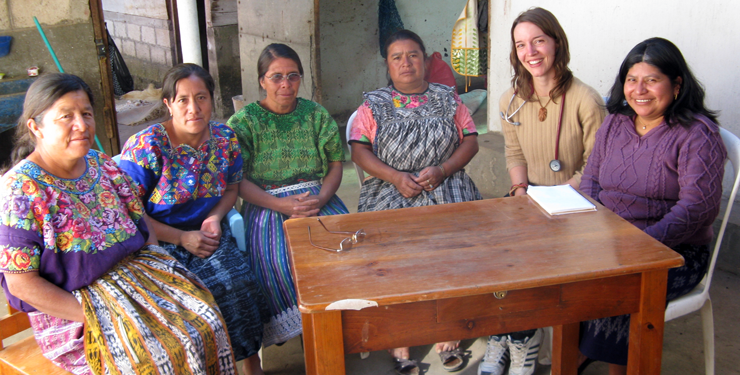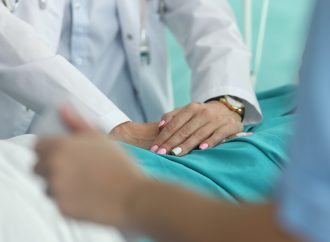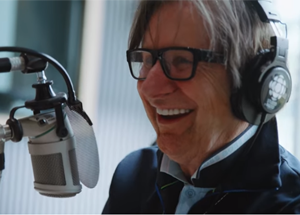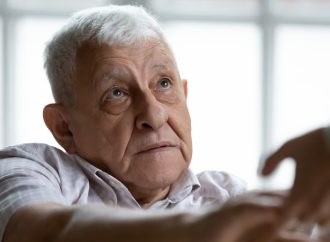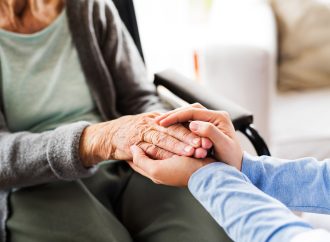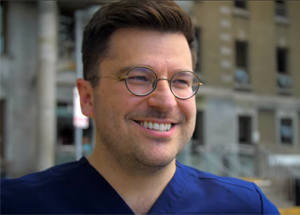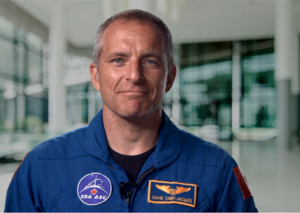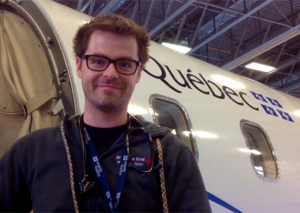 Lucy Manchester is currently a fourth year McGill medical student and soon to be a Family Medicine resident. Even with her busy schedule of medical school, she still finds the time to be involved in several committees and projects! To name just a few, she is implicated in the Aboriginal Health Interest Group, the Family Medicine Undergraduate Curriculum Committee, the Indigenous Health Curriculum Committee and many others. She has a particular interest in Aboriginal Health and Global Health. She recently did an international research elective on Maternal and Infant Health in Guatemala.
Lucy Manchester is currently a fourth year McGill medical student and soon to be a Family Medicine resident. Even with her busy schedule of medical school, she still finds the time to be involved in several committees and projects! To name just a few, she is implicated in the Aboriginal Health Interest Group, the Family Medicine Undergraduate Curriculum Committee, the Indigenous Health Curriculum Committee and many others. She has a particular interest in Aboriginal Health and Global Health. She recently did an international research elective on Maternal and Infant Health in Guatemala.
You are involved in different groups and committees; can you tell us more about your interests?
“When I first started medical school I wasn’t sure I’d fit in – coming in with broad interests in environmental issues, global health, and social justice I didn’t know how I would handle four years of mostly science! But I soon realized I had nothing to worry about. There were lots of students with similar interests running clubs like the International Health Initiative, the Family Medicine Interest Group and the Aboriginal Health Interest Group. I was particularly interested in learning more about indigenous health and social issues; I had spent my undergraduate in Global Health learning about the rest of the world and knew almost nothing about my own country. Through these activities, I was lucky to meet some incredible people; among them, Dr. Ann Macaulay, the Aboriginal Health Interest Group’s faculty mentor and a Canadian hero for her work in primary care and participatory research with Mohawk communities. Through the teachings of many inspiring guest lecturers, both health professionals and community members, I began to understand the face of aboriginal health in this country. It was shocking at first to realize how huge the disparities are in health and social determinants. Yet the people working across Canada to heal their communities are strong and patient and often remarkably willing to teach outsiders like me.”
Why did you choose Family Medicine as your career path?
“Family Medicine is the only specialty that has ever truly interested me. As someone who values a challenge, I look forward to the puzzle of the undifferentiated patient complaint, to the diversity of patients and diseases that I will encounter. In addition to the medical challenges, I have seen that family doctors can often take a sizable role in addressing social issues with their patients, such as housing, citizenship, or domestic abuse, which have huge impacts on health. In the big picture, family physicians are both in shorter supply and requiring less investment of time and resources to train, so as someone eager to contribute to my community it seems the most sensible choice. Lastly, on a personal level, I still don’t know exactly what kind of medicine will suit me best going forward – be it hospital practice, clinic, or emergency room, and training as a family physician will allow me to do any of these, or all of them!”
Can you tell us more about your research elective on Maternal and Infant Health in Guatemala?
“I was really lucky to meet the perfect research supervisor last year. Dr. Anne Marie Chomat is a staff physician at Tufts University in Boston but is currently enrolled at McGill for her Ph.D., and invited me to join her for two months in the highlands of rural Guatemala to lend a hand with her thesis research. Her study is enormous, employing dozens of local community health workers, midwives and nutritionists to investigate the link between maternal stress and infant growth stunting among the Mayan Mam population. My role as a student was to help with clinical exams of our study patients – pregnant women, who we followed with their babies at 1 month and 4 months post-partum. I wanted to learn more about research methods, so Dr. Chomat arranged for me to also conduct a small research project of my own, looking at barriers to access to health care among indigenous patients. I also shadowed in the local public hospital for two weeks, to better understand the doctor-patient interactions there.”
“The experience was incredible, as I got to do clinical research while also focusing on some of the social and cultural issues that affect the health of this population. I learned about the challenges of field research, some strategies for working in a very different cultural and political context, and had the wonderful experience of collaborating with and learning from community members and traditional healers.”
How do you manage your time between your involvement in several committees, medical school and your personal life?
“Time management is one of life’s greatest ongoing existential crises, I think. I don’t always feel like I’m doing it well! But I try to keep my eye on the big picture. In five years, will I remember that I was tired this week because I went to an evening seminar and then had to study? Probably not. Everyone develops their own way of gauging which friends’ potlucks they have to miss and which clubs they really need to join… for me I think about what are my bigger goals for this time of my life. In medical school, I wanted to learn more than medicine. School (or eventually work) will always be there and may take over a lot more time than I would like it to, so for me, it’s more a matter of making sure I make time for the fun stuff.”
How do you envision your future practice?
“I found medical school a tough place to figure out where and how I would like to practice. We have so few electives with which to test things out! But I know that I would love to continue working with and learning from indigenous communities, in Canada and abroad. I would also love to incorporate in my practice the full breadth that family medicine has to offer – from hospital-based to outpatient care. The month I spent doing rural family medicine in Northern Quebec was probably the most interesting and enjoyable work environment I’ve seen. Rural family doctors are like ninjas – they can do everything! I would love to be like them, but as someone who has grown up in big cities, I don’t know if I will ever be able to relocate permanently to a rural setting. Urban inner city settings, such as work in refugee clinics or with unstably housed patients, offer much of the same diversity as well as a complex set of social determinants that are impacting health. As I’ve been told by many, there will be plenty of time after residency to work in different settings and figure out what I like – that flexibility is one of the most exciting things about being a family physician.”
Thank you and good luck to you Lucy!
 Interview conducted by Carolina Capelle
Interview conducted by Carolina Capelle

